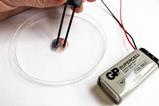We think a lot about what students forget over the summer break, but what about teachers?

Use it or lose it. It’s something we often hear. Research shows it seems to apply to students over the summer (the so-called summer learning loss), with various studies reporting a decline in skills such as reading and maths over the summer break.
German psychologist Hermann Ebbinghaus tested his memory in the late 1800s, culminating in a chart depicting the exponential decline of memory – or the forgetting curve. ‘We know from the forgetting curve that unless we have spent time relearning and going over things enough that they’ve ended up in our long-term memory, we will forget them,’ explains Harry Lord, a chemistry teacher at Haslingden High School near Manchester.
We think a lot about how this applies to students and their subject knowledge, but what about teachers – what do they forget over the summer?
‘Definitely photocopier codes,’ says Richard Newbold, a teacher at The Skinners’ School in Tunbridge Wells, who has been teaching science for 17 years. ‘Student names also go really quickly,’ he continues. ‘I’m personally really good at learning them, then really good at forgetting them. At the start of the year I’m always walking around with the seating plan with their pictures on just as a prompt.’
Sliding subject knowledge
It’s not just the little things that can slip; if not used for a while, the finer points of subject knowledge can fade too. ‘Maybe the quality of my definitions slips a little bit,’ continues Richard, ‘partly because I’ve switched between exam boards so many times and they’re all subtly different’. Harry agrees: ‘As I don’t spend the holidays thinking solely about chemistry, there have been times [at the beginning of term] when I am going through a particularly difficult concept and I might mince my words or take a while to remember the correct term.’ Harry also describes how he sometimes struggles to correctly remember all the colours of inorganic ions and complexes if he’s had a break from teaching. ‘It’s basically a memory test,’ he says. ‘There is no overarching concept that you can understand and then never worry about forgetting it.’
But Harry doesn’t think it’s anything to be concerned about: ‘It’s nothing that isn’t sorted out after a few days. We are all human and we might forget some of the details relating to topics we’ve never taught or haven’t taught for years, and that is normal and should be expected. [After a couple of years] your subject knowledge grows rapidly and it becomes like riding a bike. If you haven’t been out on it for a few months, the first bit can be a little daunting, but after a little while it will feel comfortable again.’
‘When you teach the same lessons, you’re almost constantly revising as you go’
‘Remembering the colours of organic complexes is basically a memory test’
Annie, a teacher in Cambridgeshire, isn’t so worried about sliding subject knowledge. ‘If you’re in a school where you teach a repeated curriculum and you know you’re not teaching anything new in September, [the knowledge is] already embedded,’ she says. ‘You tell the kids one of the best ways to revise is to teach the content to somebody else, so when you teach the same lessons, you’re almost constantly revising yourself as you go.’
Both Harry and Richard think that forgetting subject knowledge is an issue that newer teachers and non-specialists struggle with after the summer holidays and agree that brushing up over the summer is important. ‘You need to sit down and do some exam papers – find out what you don’t know,’ says Richard. When asked if she’ll be brushing up on anything over the summer, Anna-Maria, an NQT in Wembley, describes how, ‘At this point in my career, I’m happy just to get to know the subject content more. You want to feel like the expert in the classroom, especially if you’re teaching a new part of the curriculum.’
Reflect and develop
Once your subject knowledge is stronger, Harry thinks the summer is a good opportunity to reflect on the year – what went well and what didn’t. ‘After a couple of years and hard work, your subject knowledge will be strong and you can use your summer to recuperate and reflect on the year you‘ve had,’ he says.
‘The summer is a good time to steal as many good ideas from other people as you can!’
Richard also thinks the summer is a good time to ‘steal as many good ideas from other people as you can!’ Annie describes how one of her colleagues sets themself the aim over the summer of reading around and coming up with one interesting idea to bring back to the classroom the following year, anything from a teaching method to a curriculum topic. One topic Annie is thinking about for next year is vaccines: ‘There’s a lot of vaccine stuff around at the moment – it would be great to read more about that. Is there any real data that you can bring into the classroom? Which year group would you introduce it to – is it a good summer project for A-level students or a good introduction for year 7s?’
Summer plans
‘I will 100% just be recovering from what has been a stressful year, even though I’ve enjoyed it,’ explains Anna-Maria. ‘I also want to use the summer to reconnect with the fun parts of my subject that I’m passionate about, whether it’s listening to podcasts or going to the Science Museum.’
‘It’s normal to feel nervous about the first day back teaching after a long break’
This summer, Richard is going to be concentrating on how to recap material and consolidate students’ knowledge: ‘I see serious problems coming up over the next two or three years for the younger students who lacked the motivation and the maturity to keep working hard [during the pandemic]. So I think going back over material is going to be quite important.’
Whether you are planning on consolidating subject knowledge, lesson planning or brushing up on classroom skills this summer, Harry has some advice: ‘I think it is normal to feel nervous about the first day back teaching after a long break. As you get older, you know that will pass and you have the skills necessary to do your job well.’ He concludes, ‘Please find a healthy balance between any work and time with your family and friends. Future you will be grateful.’














No comments yet